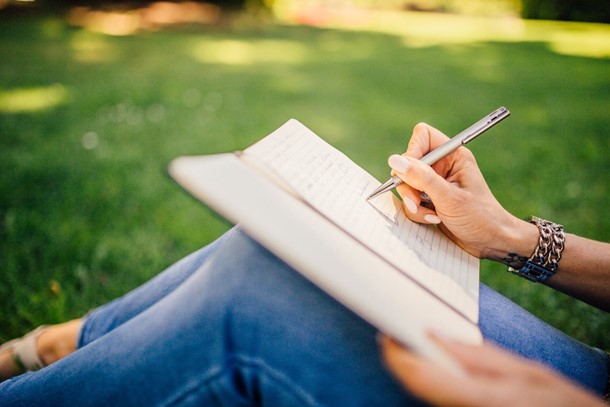Nearly 1 in 5 adults in the U.S. deals with some type of mental illness. Those illnesses can vary in severity. Some people might be high-functioning while others find their condition debilitating. Even without official diagnoses, many people find that they’re extremely stressed or overly worried about things.
The COVID-19 pandemic didn’t help matters. A recent study found that 4 in 10 adults reported symptoms of anxiety or depression during the pandemic. Even though things are starting to get back to normal, the effects of COVID will be long-lasting. Add that to other issues we’re facing as a nation and personal issues you’re dealing with, and it’s no wonder why mental health is such a prominent issue.
Everything from therapy and counseling to medication and self-care can help to improve your mental health. But, if you’re a writer, doing something that comes more naturally might offer
bigger benefits. Journaling is a great way to improve your mental health when you’re feeling overwhelmed or stressed.
Utilizing your journal properly can help you to redirect your thoughts and track your overall wellness.
If you’re not sure how to get started with effective journaling, we’ve got a few different techniques that can help.
Gratitude Journaling
One of the best ways to preserve your mental health as you age is to stay positive. That isn’t always easy to do when things seem so uncertain.
Gratitude journaling is one way to stay positive every day while reminding yourself of the good things in your life. It’s not always easy to think of the things you should be grateful for each day. A professor at the University of California, Davis, has a few tips to get started with gratitude journaling, including:
● Be motivated by the desire to become happier
● Write in detail
● Get personal
● Think about what your life would be like without certain things
● Record “surprises” or unexpected events
● Don’t overdo it, limiting your entries to once or twice a week
Choosing to be more grateful can reduce stress levels and help to fight off feelings of depression. Plus, when you write things down, you can look back on them. That’s especially helpful when you’re having a hard day and need a pick-me-up. Reminding yourself of everything you have to be grateful for is a quick and effective way to feel better and change your perspective.
Habit Tracking
Setting goals for yourself or wanting to change certain habits can improve your overall well-being. Journaling can help you to accomplish those goals and change your habits in a few different ways.
First, the very practice of journaling teaches discipline. By writing in your journal each day, you’re forming a helpful habit. You might have trouble getting started or sticking with it at first. But, once you form that habit, journaling will become a part of your daily routine. That will show you that other important habits can also start to become more normal in your life.
One of the reasons it can be so difficult to accomplish goals and stick to healthier habits is a lack of motivation. You might think that you’re not progressing or getting closer to the things you want. Journaling can help to prove you wrong and boost your motivation, all at once. If your goal is to eat better or exercise more, journaling will help you keep track of it. If your goal is to track how you feel, journaling can help. It can give you a glimpse into areas of your life that might be damaging your mental health, rather than boosting it.
For example, consuming too much social media or heavily binge-watching your favorite shows can negatively impact your mental health. If you write about how you feel after these things, you might start to see a pattern. When something is in black and white, it makes it easier to recognize what’s wrong, and what you can do to change your habits for the better.
Practicing Mindfulness
Mindfulness gets thrown around a lot these days as a “buzzword.” But, it’s so much more when it’s done properly. You don’t have to meditate or go through any ritual to practice mindfulness. Journaling is actually a wonderful way to get started, especially if you’re already an avid writer. A mindfulness journal can include:
● Writing about your surroundings
● How you feel in the present
● Jotting down thoughts, rather than pushing them away
When you choose to write mindfully, you’re focusing on the moment you’re in, rather than writing about the past or future. Practicing mindfulness allows you to let go of negative thoughts that might be damaging your mental health. By writing those thoughts down, you’re taking control and proving to yourself that you can stay present and focused without feeling stressed or worried.
If you want to use your journal to be more mindful, consider carrying a small one around with you. Use it whenever you’re feeling overwhelmed or anxious. It can help you to stop judging yourself and your habits, let go of anxious thoughts, and simply “be there” for yourself. Self-care is another buzzword that gets used quite often, but journaling is one of the best forms of it you can do.
There are no special processes you have to go through to journal mindfully. You could be in your favorite coffee shop, the local park, or at home. The beauty of journaling is that you can do it anywhere, and simply getting a few thoughts down on paper can make a big difference in how you feel – especially in a stressful moment.
There are so many additional ways to utilize your journal for mental health. As a writer, it’s important to find out what works for you and makes you the most comfortable. As you get used to writing every day, your journal can start to feel like a close friend you can tell anything to.
Take advantage of that and write with intention. When you do, you’ll quickly start to see how paper and pen can have an impact on your mental state.
 Author bio:
Author bio:
Frankie Wallace is a freelance writer from the Pacific Northwest. She writes about a variety of topics and spends her free time gardening.




Leave Comment